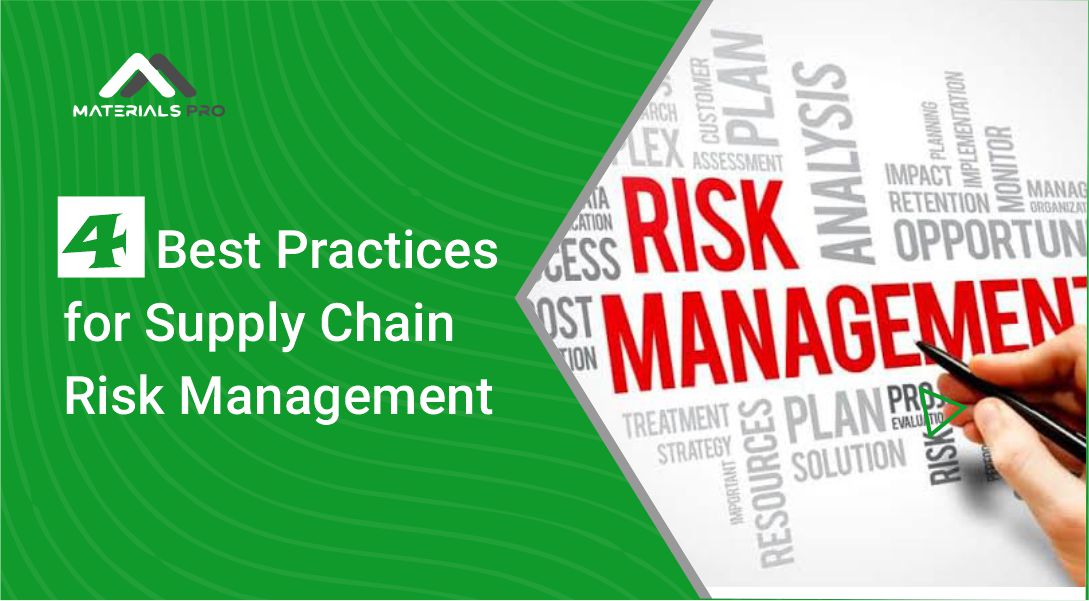Mastering Supply Chain Risk Management: 4 Essential Practices for Construction Professionals
MaterialsPro
May 14, 2024 - 3 minutes
In the dynamic world of construction, navigating the complexities of the supply chain is crucial for success. From sourcing materials to coordinating deliveries, every step of the process presents its own set of challenges and potential risks.
However, with the right strategies in place, you can effectively mitigate these risks and ensure smooth operations from the start to finish of your projects. In this blog post, we'll explore four best practices for supply chain risk management that every construction professional should know.
1. Proactive Supplier Relationship Management:
One of the cornerstones of effective supply chain risk management is building strong relationships with suppliers. By fostering open communication and transparency, you can gain valuable insights into potential risks and proactively address them before they escalate. Regularly assessing your supplier performance and reliability ensures that the supply chain remains robust and resilient in the face of uncertainty.
2. Adopting Multiple verified suppliers
Relying too heavily on a single supplier can leave you vulnerable to disruptions such as price fluctuations, production delays, or unforeseen emergencies. To mitigate this risk,you have to diversify your supplier base and cultivate relationships with multiple vendors. By spreading out sourcing efforts across different suppliers, you will minimize the impact of disruptions and maintain continuity in operations.
3. Utilization of Technology:
In today's digital age, technology plays a crucial role in enhancing supply chain management practices. You can leverage advanced software solutions for inventory tracking, demand forecasting, and real-time visibility into the supply chain. Automated systems not only streamline processes but also provide valuable data insights that enable proactive decision-making and risk mitigation.
4. Contingency Planning:
Despite careful planning and preparation, unforeseen events can still occur that disrupt the supply chain. That's why it's essential for you to have robust contingency plans in place. These plans should outline alternative sourcing options, emergency protocols, and communication strategies to minimize the impact of disruptions and ensure your project timelines are met.
Effective supply chain risk management is essential for success for all types of Construction Projects.
By implementing proactive strategies such as proactive supplier relationship management, diversification of suppliers, utilization of technology, and contingency planning, you can navigate potential risks with confidence and ensure the smooth execution of projects. With these best practices in place, you can build resilient supply chains that withstand challenges and drive continued growth and success.
MaterialsPro is an on-demand eProcurement and supply chain platform facilitating seamless procurement of bulk building materials for home builders and contractors.
We look forward to working with you! Sign up on www.materialspro.ng or send an email to [email protected] to get started.

